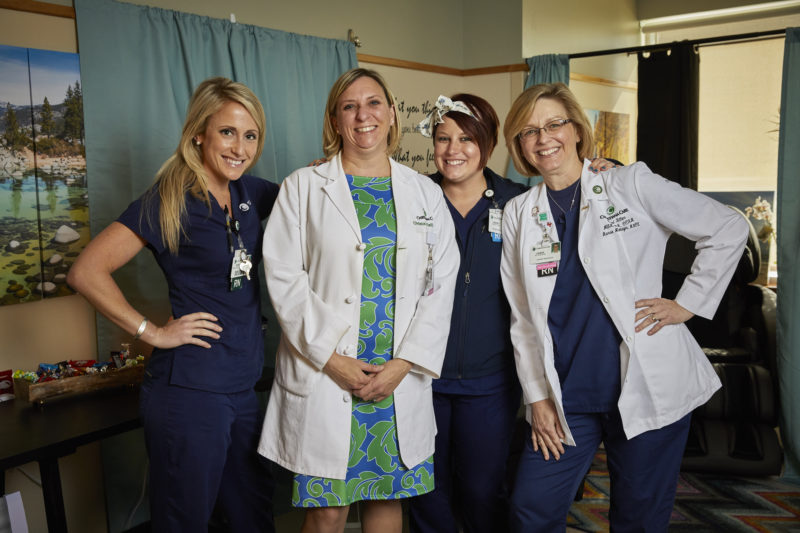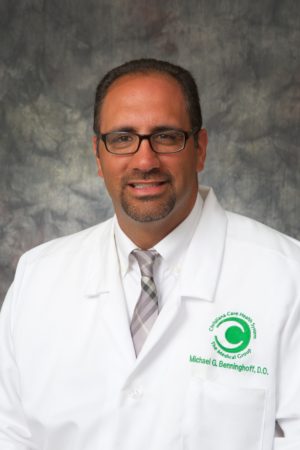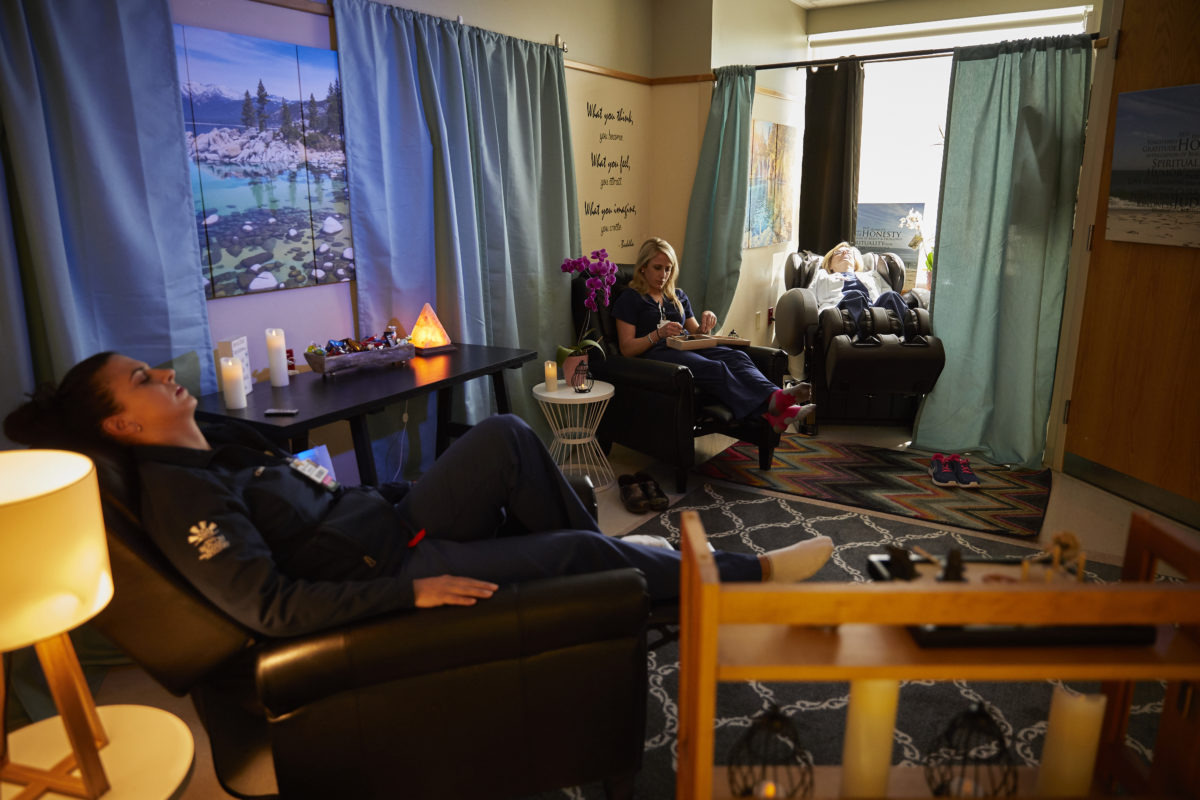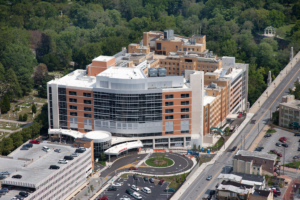In the fast-paced Medical Intensive Care Unit (MICU) at Christiana Hospital there is an OASIS — a quiet, tranquil room where staff members can take a few minutes to regroup, refresh and reflect.
“It’s hard to see people suffering,” said Christa Fistler, M.D., a pulmonary intensivist. “The OASIS room is quiet and calming. It allows me to refocus and reenergize so that I can then go back into the unit fresh and ready to work again.”
The concept of creating an OASIS, which stands for Opportunity to Achieve Staff Inspiration and Strength, extends beyond the walls of the room and into the culture of the unit.
The concept itself isn’t new at Christiana Care. For example, the Heart Failure unit 5E at Christiana Hospital has an area of an equipment room sectioned off with curtains that includes a massage chair, soft lighting and a CD player for relaxing music, providing a space for staff to recharge.

“It allows staff the opportunity to step away from the busy unit and take a moment to relax in a comfortable and peaceful environment,” said Lynda M. Huselton, MSN, MSM, RN-BC, interim nurse manager of 5E.
The MICU staff participated in a 12-month initiative designed to build resilience and reduce compassion fatigue and vicarious trauma.

“The goal was to create the conditions for the MICU staff to find joy in their work and in doing so improve the experience of providing care,” said Heather Farley, M.D., FACEP, director of Provider Wellbeing.
The program was conceptualized by Dr. Farley, Barbara Albani, M.D., Patricia Moore, M.D., and Vanessa Downing, Ph.D. Once the MICU was identified as the target unit, Dr. Farley and Dr. Downing led the development of interventions and mentored the staff to become well-being champions.
A multipronged approach included monthly interactive education sessions, staff-recognition efforts, activities to build camaraderie and identifying OASIS champions in the unit. Interactive sessions focused on fostering individual and team resiliency, covering topics such as dealing with change, healthy conflict, mindfulness and gratitude. Staff also assessed how well they do in meeting their own needs, including exercise, sleep, a healthy diet and fulfilling their intellectual curiosity.
The OASIS room itself is a space that has been transformed to feel far-removed from the hospital. It includes low lighting, a massage chair, a fountain, curtains, a coffee maker, chocolates and a sound machine that replicates soothing rain or waves. Adult coloring books, a small zen garden with a rake and stones and other relaxation tools provide ways for staff to take a mental break and de-stress.

“If we don’t take care of ourselves we can’t take care of our patients,” said Michael Benninghoff, D.O., MS, section chief, Medical Critical Care. “Resilience is a collection of skills that we can cultivate and intentionally apply to help people in high stress roles thrive over the long haul.”
Nurses researched OASIS rooms at other hospitals, as well as evidence-based practices. They also sought input from the staff, displaying a mock-up of the room with post-it notes for suggestions.
“We thought about what we want to go on in the room and what we didn’t want to go on in the room,” said Lindsey Hoosty, a direct care expert. “We knew that we wanted a place to decompress and recharge. We knew that we didn’t want eating or sleeping.”
Staff members are asked to limit breaks to 15-20 minutes to be thoughtful of their colleagues.
“Nurses are making the time so that other nurses are free to use the room,” Hoosty said. “We are learning to take better care of ourselves and each other.”
The staff continues to refine the space, gathering feedback through a suggestion box, noted Carol Ritter, MSN, RN, CCRN-K, CNML, MICU nurse manager.
“Someone left a note asking if we could install hooks for a jacket, which we did,” she said.
A year after the launch of the initiative, there is a 12 percent decrease in total unit turnover; mean monthly unplanned paid time off is down 18 percent. OASIS is now in Phase 2, with MICU champions leading the initiative.



